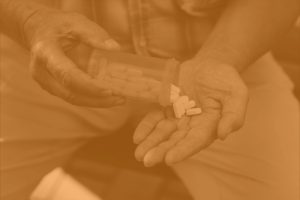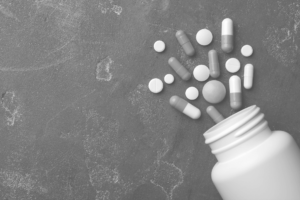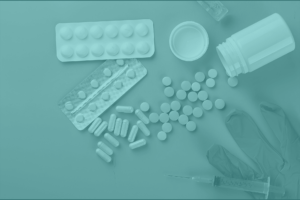News | Drug Deactivation + Disposal
Filter by category

What Does a Controlled Substance Mailback Program Look Like?
Secure a Drug’s controlled substance disposal program can offer facilities a fast and easy way to manage drug waste responsibly. Learn exactly how these programs work.

Prevent Hospital Drug Diversion With Secure a Drug
Drug diversion occurs when prescription drugs are distributed or used in ways other than those intended by the prescriber. Unfortunately, drug diversion can happen in any hospital and put patients and staff at risk. If you’re a part of a hospital or clinic’s leadership, you are most likely also aware of the potential for severe financial and legal ramifications from drug diversion. Preventing drug diversion can be quite challenging, but there are steps hospitals can take to stop this problem from occurring.

Liquid vs. Pill Disposal of Controlled Substances
Regardless of the format of the controlled substance, the same rules and regulations apply when it comes to compliant waste disposal. Beyond strict compliance, destroying unused controlled substances is an effective method in reducing and preventing drug diversion in a pharmacy or medical facility.

How do you Ensure Compliance in Drug Disposal?
When it comes to safe and compliant drug disposal, it’s important to know the laws and regulations for containment and safe disposal of pharmaceuticals.

Consequences of Improper Pharmaceutical Disposal
What are the dangers and consequences of improper pharmaceutical disposal? Despite advancements in regulations and guidelines for the development of effective, safe, and compliant drug disposal processes, the dangers of non-compliance – and its consequences – still exist.

Why Stopping Drug Diversion Matters
Drug diversion is a serious issue in hospital environments throughout the U.S. and in other countries around the world. The issue not only affects healthcare professionals involved in drug diversion activities, but puts patients at risk as well. Identifying and preventing drug diversion is filled with challenges.

How do you Avoid Drug Diversion?
Reducing the risk of drug diversion in your facility requires not just knowledge of the problem, but the right tools and procedures that contribute to a safer drug disposal program in your facility.

Understanding Drug Denaturing and Non-Retrievable Strategies
Expired or unwanted pharmaceutical drugs and unused prescription opioids must be rendered harmless before disposal in order to prevent potential theft or misuse of a drug through inadvertent exposure to children or others. Such practice can also reduce incidents of drug diversion, as well as to prevent those drugs from entering into and damaging groundwater or soil. When it comes to drug denaturing and planning non-retrievable strategies to protect people and the environment, definitions are important.

How to Identify and Dispose of Hazardous Pharmaceuticals and Controlled Substances
Knowing which drugs need to be disposed of in hazardous waste containers is vital. Compliance with federal and state regulations reduces the potential for fines and penalties while at the same time increasing safety. Proper management, protocols, and in-house processes for any facility that handles or receives hazardous drugs also protects human health and the environment.

